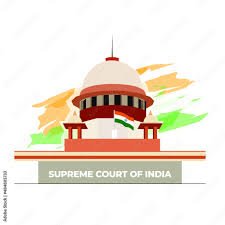The case is between M/s. Sethia Infrastructure Pvt. Ltd. (Appellant) and Mafatlal Mangilal Kothari and Ors. (Respondents). The matter originated from a suit (Original Suit No. 289 of 1967) filed by the respondents for eviction, which was dismissed on July 7, 1988.
First Appeal & Dismissal: An appeal (First Appeal No. 1483 of 1988) was filed by the plaintiff (respondent) and admitted on March 7, 1989. However, this appeal was dismissed for non-prosecution on May 20, 2008, due to the non-filing of pleadings within three months of a February 20, 2008 order.
The respondents later filed an application for restoration of this appeal, along with a prayer for condonation of a massive delay of 5,250 days. The High Court, in an order dated October 25, 2023, condoned this significant delay and directed the restoration of the First Appeal for decision on merits.
During the period the First Appeal remained dismissed, the appellant/developer (M/s. Sethia Infrastructure Pvt. Ltd.) claims to have started developing the suit property on a “mega scale,” leading to the creation of third-party rights. The current appeal before the Supreme Court challenges the High Court’s order condoning the delay.
Law Involved (Implicit):
The core legal principles revolve around the condonation of delay in judicial proceedings, particularly concerning the discretion of courts when faced with exceptionally long delays.
It also touches upon the legal implications and considerations for third-party rights that may emerge during periods of litigation dormancy or dismissal.
The judgment refers to a prior legal precedent from (2008) 11 S.C.R. 1 concerning the allowance of restoration applications.
Reasoning:
Unjustifiable Delay Condonation: The Supreme Court found that the High Court’s condonation of a “huge delay of 5,250 days” was not legally sustainable. The Court emphasized that when dealing with restoration applications, it must be “cognizant of the fact that time does not stand still”.
Impact on Third-Party Rights: A critical aspect of the Supreme Court’s reasoning was the observation that “certain third party rights have been created in the property in dispute” after the appeal was dismissed for non-prosecution. The Court noted the presumption that third parties might have developed rights and interests in the property.
Neglect and Subsequent Action: The Supreme Court implicitly criticized the respondents for their prolonged inaction, referring to them as being “woken up from his ‘alleged slumber'” only after the appellant/developer began significant construction on the property.
Lack of Hearing for Affected Parties: The High Court’s decision to condone the delay without adequately considering or hearing the appellant/developer, who claimed to have invested in the property during the period of dismissal, was a key factor.
Holding:
The Supreme Court concluded that the High Court’s impugned order, which condoned the delay and restored the appeal, “cannot be legally sustained”.The matter has been remitted back to the High Court for fresh consideration.The High Court is directed to decide the application for condonation of delay afresh, ensuring that the appellant/developer is heard.The appellant/developer, who claims to have developed the suit property while the appeal was dismissed, may be impleaded as a party in the proceedings if deemed necessary by the High Court.
M/S. SETHIA INFRASTRUCTURE PVT. LTD V. MAFATLAL MANGILAL KOTHARI
Supreme Court: 2025 INSC 985 (DoJ14-08-2025)






